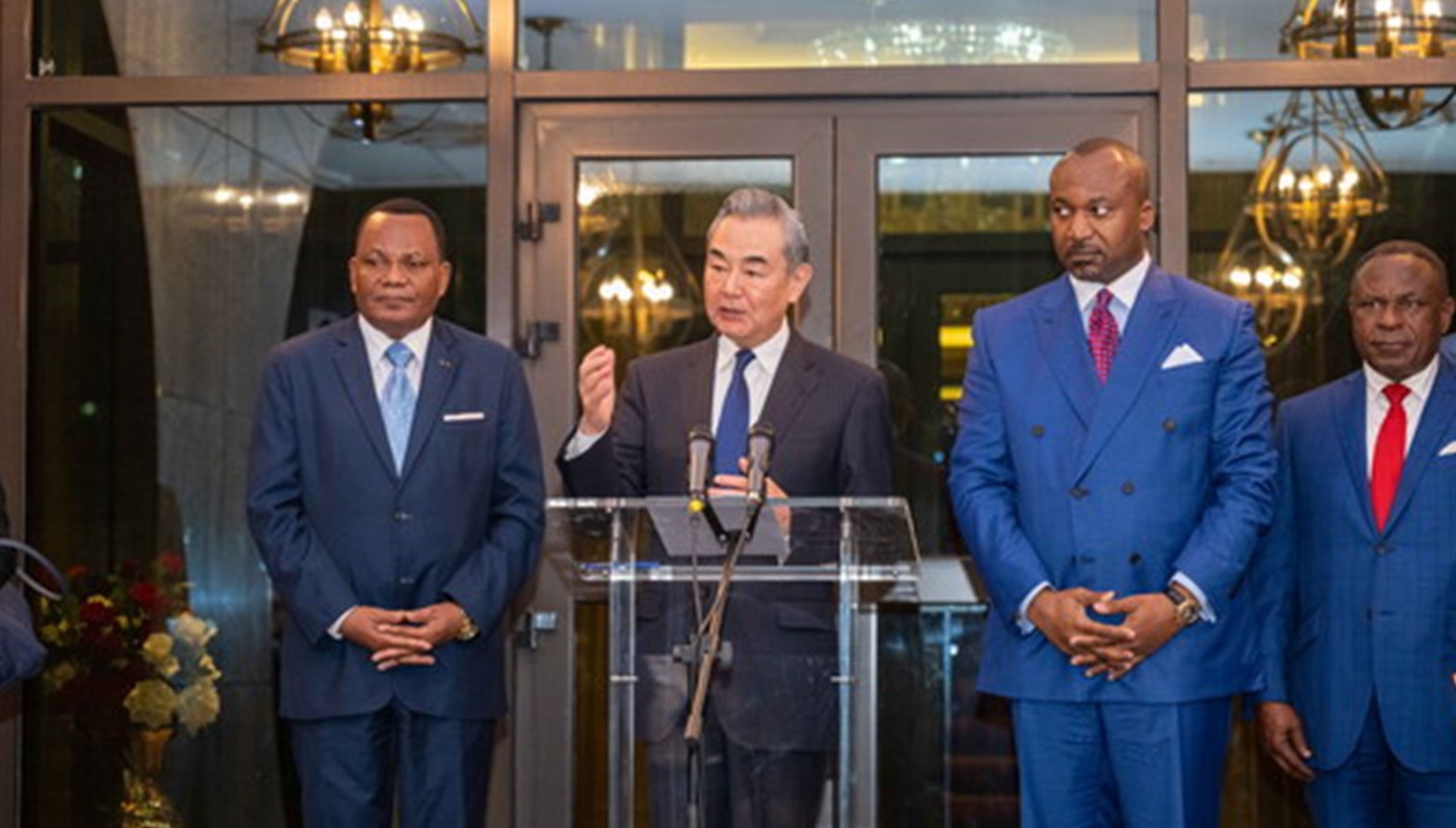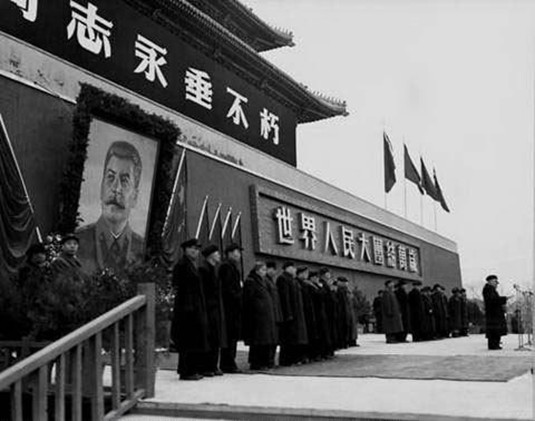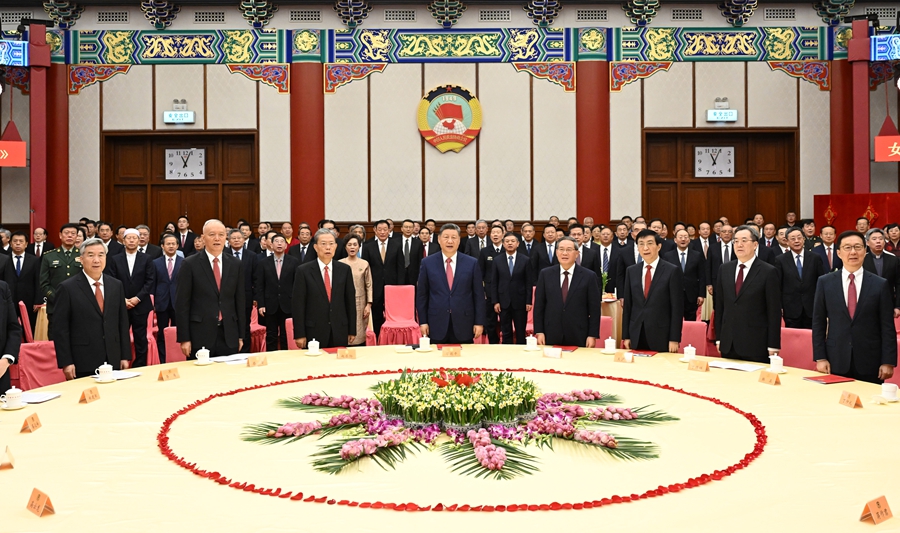
The Leninist Leash: How Beijing’s Answer to Global Demand for Choice Makes the World More Closed Off
The Leninist Leash: How Beijing’s Answer to Global Demand for Choice Makes the World More Closed Off
Executive Summary:
- Many so-called “Global South” countries feel it is time to do away with what they regard as the double standards of rich countries and are open to alternatives. However, Beijing’s offer comes with a catch: it involves exporting the controlling logic of its party state.
- There are two main steps in the operation of the Leninist party state. First is the organization of targets by enmeshing them in various threads which each have their own logic. These threads only come together in the Party Centre. Second is the mobilization of the targets. This is done by leveraging these ties through the invocation of the language of ideology.
- The Community of Common Destiny for Mankind is the international developmentalist counterpart to the domestic ideology of nationalism. By getting tied up in the three Global Initiatives, developing countries are organized into the “Leninist leash” at various political, economic, and social levels.
- The consequence is an international system that risks becoming more closed off. Widespread verbal compliance creates a collective action problem, while leaders of target countries need to keep in mind the possibility of pushback from all levels at home and abroad.
During his annual year-opening trip to Africa, People’s Republic of China (PRC) foreign minister Wang Yi (王毅) called for cooperation to reform global governance. In the view of the PRC, the rise of the Global South, developing countries’ right to modernization, and Africa’s suffering under “hegemonism” require changes to the international system (Xinhua, January 10). The PRC is prepared to help lead these changes by sharing its own solutions.
The demand exists. The varied global response to Russia’s full-scale invasion of Ukraine and reactions to Israel’s conduct in Gaza indicate a sense in the capitals of many so-called “Global South” countries that it is time to do away with what they regard as the double standards of rich countries. Western appeals to a “rules-based international order” are losing some of their attraction.
The PRC offers an alternative, but one that comes with a catch. This is the “Leninist leash.” As Beijing proceeds with its efforts to shape the world, it does so by following the operating logic of its own party-state. The unique nature of the Chinese Communist Party (CCP) means that this entails the export of domestic control mechanisms abroad. Just as the rules-based international order has elements of the political structures and values of the countries that were instrumental in founding it—namely, the United States and its allies, the PRC’s proposal likewise reflects its own approach to governance.
This consists of bringing everyone and everything within its system of Leninist control before using the various ties it has built to steer people’s actions in different arenas, often through mass campaigns. Today, the same leash that keeps the CCP’s cadres in line also is in operation abroad. This is the Community of Common Destiny for Mankind (CCDM, 人类命运共同体). [1]
The Leninist Leash Within the PRC
Under CCP General Secretary Xi Jinping, the Leninist side of the Chinese party-state has gained in strength and cohesion at home. Party structures for dealing with the outside world now also play larger roles, of which the United Front Work Department (UFWD) is only the most notable (China Brief, May 9, 2019). The Party’s “organizational weapon” is designed to mobilize people to implement the party line (RAND, 1952). Understanding how Beijing seeks to wield this weapon to safeguard its growing interests overseas requires an understanding of its operation domestically.
A Leninist system exerts its power over people in a two-step process: organization and mobilization. First, subjects are organized into a control structure made up out of overlapping and redundant components, each with their own logic. This forms the “Leninist leash.” People are connected to superiors through multiple channels. This can be direct, in the form of bureaucratic relationships that tie officials to both local party secretaries and national ministries. It can be coercive, in the form of subjugation to law enforcement or hired thugs. It can also be indirect, through social and economic relationships manipulated by state-owned enterprises and party front groups under the UFWD or neighborhood party committees. Organizing people in this way creates a complicated tangle of ties that sometimes conflict. This tangle of ties keeps the system in check while coming together at the top of the system to combine into something sturdy for the “Chairman of Everything” to pull on (New York Times, November 8, 2015).
Once the Party has constructed these ties, it uses them to mobilize people. This occurs through instilling ideology by forcing officials to attend party schools and regular study sessions, and to stay abreast of circulars, speeches, party committee newspapers (the most famous of which is the Central Committee’s People’s Daily), and, more recently, mobile apps (Pieke, 2009; Foreign Policy, March 6, 2019). [2] Through this, cadres imbibe the correct words that will serve as a guide for action, orienting them toward the priorities of their various superiors. [3]
One consequence of this system is that it leads to a highly decentralized practice. Numerous demands for visible compliance with directives force subordinates to prioritize being seen to perform their roles by repeating and implementing the latest phrases. On the other hand, the overlap of interests and responsibilities means that actual implementation is a process of pretense and negotiation. [4] A clear illustration is provided by the contradictions in the PRC’s high-speed railway system, which is at once an infrastructure marvel and white elephant—highly successful in places and vital for national priorities, but overleveraged elsewhere and exploited for local interests (Ma, 2022).
Community of Common Destiny for Mankind
For foreigners outside the direct reach of party discipline, the “organization” step relies on similar “weapons” but used in different proportions, while the “mobilization” step requires solutions other than the unvarnished ideology of Xi Jinping Thought. The result is the mature version of the CCDM framework unveiled at the Central Foreign Work Conference in December 2023, which is the model for all willing partners (FMPRC, January 16, 2024; China Brief, April 12, 2024). Instead of shoring up nationalist sentiment and Party loyalty, it appeals to a shared identity of development.
The formation of party-state ideology is an iterative and therefore protracted process. Since 2008, Beijing has offered to the world a supposedly superior and explicitly non-Western alternative to what it lambasts as “Western modernization” (China Brief, May 10, 2024). A 2023 speech on Chinese modernization’s role in national rejuvenation by Xi makes explicit that in an era in which “the East is rising, the West is declining; China is ordered, the West is in chaos (东升西降、中治西乱)” (Qiushi, December 31, 2024).
The CCDM represents the distillation of this process, along with its (at least) three global initiatives. Like the strands of the domestic “Leninist leash,” these are overlapping proposals that each have their own logic. In the words of one Chinese scholar, the CCDM is not about replacing one system with another, but about “democratizing international relations and pushing the development of global governance in a more just and fair direction (推进国际关系民主化,推动全球治理朝着更加公正合理的方向发展)” (Aisixiang, December 31, 2024). [5] In other words, it aims to promote a larger role for developing countries and their values.
The Global Development Initiative (全球发展倡议) was launched in a 2021 speech to the UN General Assembly (FMPRC, December 22, 2021). It is an ideological expansion of the One Belt One Road (一带一路) initiative in which Beijing uses material incentives and shared authoritarian interests to “organize” countries. One example, the Group of Friends of the Global Development Initiative, has been used to mobilize states to influence outcomes at the United Nations by inserting Beijing’s preferred wording in important documents (Lowy Institute, December 18, 2022).
The Global Security Initiative (全球安全倡议) was launched in 2022 at the Bo’ao Forum for Asia (FMPRC, April 21, 2022). It promotes security cooperation by organizing states around the PRC and increasing their reliance on PRC security forces. It tries to mobilize Asian countries through alternative conceptions of security for the region that exclude the United States and offer regimes “internal security” (Foreign Affairs, March 15, 2024). Its ideological component includes the “principle of indivisible security,” which elsewhere has been used by Moscow to justify its invasion of Ukraine by casting aspersions on smaller states’ seeking security from larger neighbors.
The Global Civilization Initiative (全球文明倡议) was launched in 2023 at the CCP in Dialogue with World Political Parties High-Level Meeting on modernization (Xinhua, March 16, 2023). The CCP has long cultivated ties to foreign politicians through such exchanges and briefings—the organizing component of the “Leninist leash” (Hackenesch and Bader, September 2020). This initiative offers an ideological umbrella in the form authoritarianism-friendly ideology against “Western” human rights universalism. States that choose to accept these terms in return help legitimize the CCP’s system. The initiative has already achieved some success, with the Like-Minded Group at the United Nations pushing the definition of human rights away from political rights and toward development (Siu Inboden, October 2021; China Brief, February 2, 2024).
Thought in Practice
There is strong global demand for “Chinese solutions” to local problems. Southeast Asian elites see great economic opportunities in the PRC despite political mistrust (ISEAS, 2024). Among leaders from 129 low- and middle-income countries, 79 percent see the One Belt One Road initiative as supporting their countries’ development (AidData, March 2024). While some states are on guard against physical risks, they regard exchanging material benefits with the PRC in return for signing on to vague language as less consequential. Research shows that United Nations departments headed by officials from countries that go along with Beijing have more CCDM terminology in their documents (Lam and Fung, 2024).
For Beijing, establishing “shared principles” at the outset of a relationship is very consequential, as they can then use verbal concessions to keep their counterpart’s actions in line with their own preferences (Solomon, 1983). Attention is often paid to the hard or sharp power aspects of the PRC’s intimidation of foreign countries. However, while mobilization is often backed by threats in the final phase, persuasion and socialization are the main tools for prompting action.
Combining approaches—what Bethany Allen calls “dual-function strategy”—is a more nuanced and accurate understanding of Beijing’s tactics. [6] For instance, One Belt One Road projects offer both development and dependence. PRC officials at the United Nations serve the organization as well as PRC interests. State-backed intellectuals interacting with other “civilizations” act as both genuine thinkers and conduits for influence operations.
Indonesia provides a good example of this approach. In its joint statement with the PRC following the third Belt and Road Forum in 2023, the country committed to supporting the PRC’s national rejuvenation as both sides placed their challenges in light of “changes unseen in a century (百年未有之大变局)”—the formulation Beijing uses to signify the end of American hegemony (FMPRC, October 18, 2023). Jakarta has since joined the BRICS grouping of countries, and is reaping the material rewards in the form of a Chinese-built high-speed rail, the first section of which is now operational (CCTV, October 20, 2024).
As a large country in a key position, Jakarta’s foreign policy of “bebas dan aktif” (independent and active) is unlikely to be heavily impacted. However, the limits to its ability to respond to Beijing’s encroachments in the North Natuna Sea are telling (ThinkChina, December 4, 2024). Its need to verbally comply with CCDM rhetoric may reduce its room for negotiation with the United States, while the infrastructure under the Global Development Initiative makes the region more economically dependent on the PRC just as ideology of the Global Civilization Initiative defuses domestic criticism of the PRC system.
The situation is even starker for smaller countries. The Solomon Islands and Kiribati have signed up for police cooperation, economic integration, and political education programs with the PRC. As a result, domestic freedoms and the scope for cooperation with traditional neighboring partners have been reduced (ASPI Strategist, March 12, 2024). This also exposes the contradiction in the language of the CCDM. While the rhetoric promotes protecting sovereignty and unique development paths, smaller nations who sign up to this “community” instead see their sovereignty eroded.
The PRC is perhaps most successful when it can directly train cadres overseas. A leadership academy in Tanzania that opened in 2023 socializes regional leaders into the PRC’s political system (ACSS, November 7, 2023). This academy seeks to grow support for closing off the local political system to opposition, and is strengthened by the country’s increasing economic dependency on the PRC (WSJ, August 15, 2019). In this way, alignment with CCP preferences is locked in at several levels.
Conclusion
Verbal compliance matters a great deal in a Leninist international system. Countries can prove compliance by repeating key phrases and acquiescing to Beijing’s interests, akin to the way in which a party secretary within the PRC would navigate the domestic system.
The operation of this system is most apparent when a leader makes a misstep. The result is a concerted pressure campaign: the leader might suddenly find themselves sidelined among Global South partners in the United Nations system, attacked by domestic businesspeople, the target of online campaigns, or punished with retracted investments and informal trade sanctions. Any real support for an independent stance is made hard to gauge as other actors have been encouraged to deploy the “correct” language in public utterances. In this way, the CCDM enmeshes these countries into the stranglehold of the Leninist leash.
The emerging PRC alternative is a challenge to the “rules-based international order.” It is one that appears to be gaining traction, especially in the Global South, where the United States is perceived as behaving in contravention of the values it espouses. However, unlike the rules-focused procedural systems of international law, this alternative is likely more invasive for cooperating countries, because the “Leninist leash” is about developing ties with the express purpose of enabling any substantive actions the leader decides to pursue. In this way, joining the CCDM opens other countries up to Beijing’s Leninist system, for instance by exposing them to the “second China shock” of high-tech manufacturing imports, to agents of the PRC’s transnational repression, or to limiting trade with Taiwan. If such a system gains traction more widely, it could ultimately be much more destabilizing for the world.
The author would like to thank Ties Dams and Kevin F. Hsu for sharing their thoughts on this piece at various stages.
Notes
[1] The Party’s current preferred rendering in English of “community of common destiny for mankind” is “community of a shared future for mankind.” This article uses the former, as it is closer to the original Chinese.
[2] For the important difference between the theory of Marxism-Leninism and the thought of Mao Zedong, see Franz Schurmann, Ideology and Organization in Communist China, 2nd ed., Berkeley: University of California Press, 1968, p.30.
[3] For excellent field work on the way incentives of central industrial plans work in practice, see Lei Ya-wen, The Gilded Cage: Technology, Development, and State Capitalism in China. Princeton: Princeton University Press, 2023.
[4] For a series of relevant case studies on the interactions between different government levels, see Zhou Xueguang, The Logic of Governance in China: An Organizational Approach, Cambridge: Cambridge University Press, 2022. https://doi.org/10.1017/9781009159418.
[5] The academic works at the Academy of Xi Jinping Thought on Socialism with Chinese Characteristics for a New Era at Renmin University in Beijing.
[6] Allen, Bethany. Beijing Rules: How China weaponized its economy to confront the World. HarperCollins, 2023.


